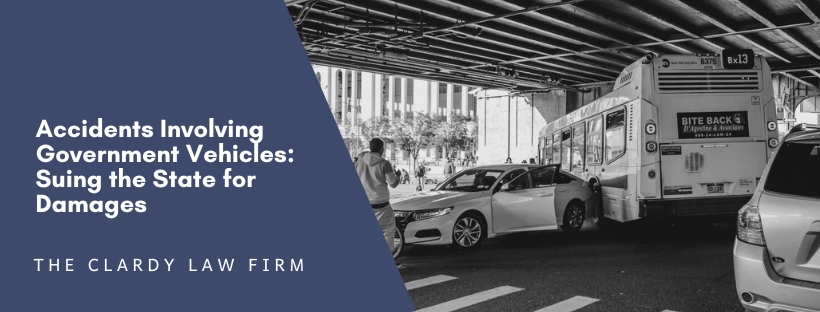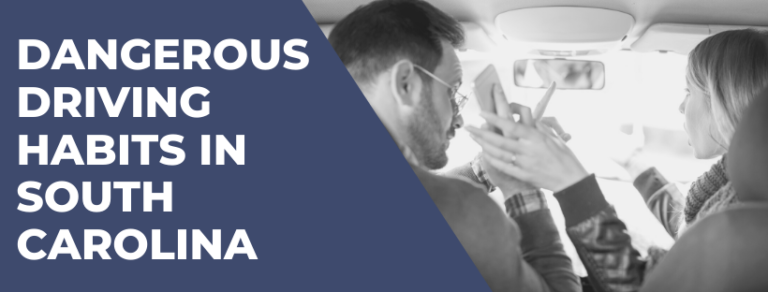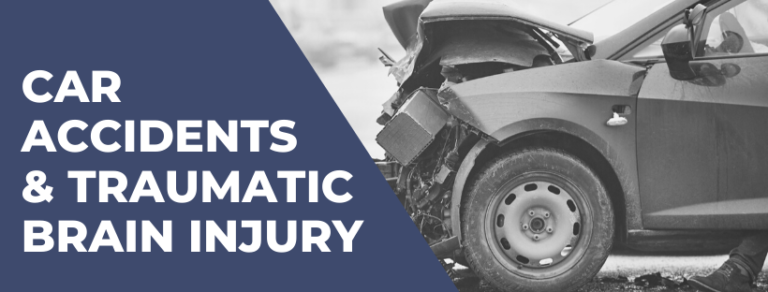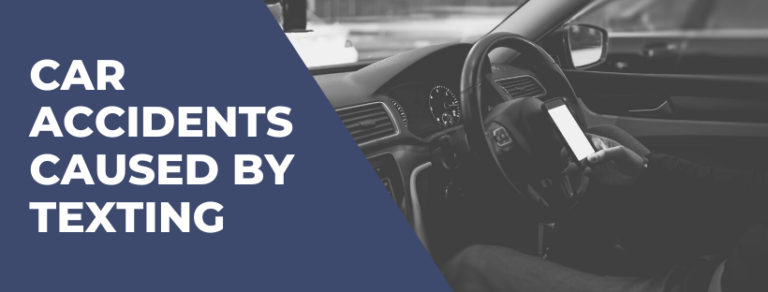Accidents involving government vehicles, such as police cars, fire trucks, and city buses, can be particularly complex and daunting. Unlike typical traffic accidents, these incidents involve unique legal considerations and challenges that can significantly impact your ability to seek compensation for damages. Understanding your rights and the legal framework surrounding these cases is crucial for anyone involved in such an accident.
At The Clardy Law Firm, based in Greenville, South Carolina, we focus on personal injury cases, including those involving government vehicles. Our extensive experience and dedication to our clients have equipped us with the knowledge and skills necessary to navigate the intricacies of these claims.
This article is a comprehensive guide on what to do if you’re involved in an accident with a government vehicle, the legal differences compared to private vehicle accidents, and how our firm can assist you in pursuing justice and compensation.
Understanding Government Vehicle Accidents
Government vehicles play an essential role in public services, ranging from emergency response to public transportation. These vehicles include police cars, fire trucks, ambulances, city buses, public works vehicles, and other state-owned vehicles. While they are crucial for maintaining public safety and infrastructure, their presence on the roads also brings unique risks and challenges.
Definition and Examples of Government Vehicles
Government vehicles encompass a wide array of transportation used for official duties. Examples include:
- Police cars: Used for law enforcement and patrolling.
- Fire trucks: Deployed for firefighting and emergency rescue.
- Ambulances: Transport patients to medical facilities during emergencies.
- City buses: Provide public transportation for residents.
- Public works vehicles: Used for maintenance and infrastructure projects, such as garbage trucks and snowplows.
Common Scenarios Leading to Accidents with Government Vehicles
Accidents involving government vehicles can occur under various circumstances, some of which are unique to their functions:
- High-speed pursuits: Police cars may be involved in high-speed chases, increasing the risk of collisions.
- Emergency responses: Fire trucks and ambulances often travel at high speeds and through red lights during emergencies, sometimes leading to accidents.
- Public transportation mishaps: City buses operate in heavy traffic and congested areas, where accidents are more likely.
- Maintenance operations: Public works vehicles often operate in construction zones or during adverse weather conditions, creating hazardous environments.
Legal Differences Between Private and Government Vehicle Accidents
When it comes to accidents involving government vehicles, the legal landscape is distinctively different from typical private vehicle accidents. These differences can significantly affect your ability to pursue compensation for damages. Understanding the legal framework governing these cases is crucial for anyone involved in an accident with a government vehicle.
Sovereign Immunity and Its Implications
Sovereign immunity is a legal doctrine that protects government entities and their employees from being sued for performing their official duties. Historically, this principle meant that the state could not be sued without its consent. However, sovereign immunity is not absolute and has exceptions that allow for legal claims under certain conditions.
In South Carolina, the state has partially waived its sovereign immunity through the South Carolina Tort Claims Act, which sets the rules and limitations for suing the government.
The South Carolina Tort Claims Act
The South Carolina Tort Claims Act (SCTCA) provides a framework for individuals to seek compensation for damages caused by the negligence of government employees acting within the scope of their official duties. Here are some key points:
- Waiver of immunity: The SCTCA waives sovereign immunity in certain situations, allowing individuals to file claims against the state and its subdivisions (e.g., municipalities, counties).
- Liability limits: The Act imposes caps on the amount of damages that can be recovered. Currently, the maximum liability is $300,000 per person per occurrence, with a maximum limit of $600,000 per occurrence, regardless of the number of claimants involved. This means that for any single incident involving government negligence, the total compensation that can be awarded is capped at $600,000, irrespective of the number of individuals injured or the extent of their damages.
- Notice requirements: Claimants must adhere to specific procedures, including providing timely notice to the government entity involved. Failure to comply with these requirements can result in the dismissal of the claim.
Key Differences in Filing a Claim Against a Private Party Versus the Government
When filing a claim for an accident involving a government vehicle, there are several important distinctions compared to private vehicle accidents:
- Notice of claim: Unlike private claims, where you can directly file a lawsuit, claims against the government require a preliminary notice of claim to be filed. This notice must be submitted within a specified period, usually within one year of the accident.
- Statute of limitations: The time frame for filing a lawsuit is different. Under the SCTCA, you generally have two years from the date of the incident to file a lawsuit, compared to the three-year limit for private party claims.
- Special procedures: Government claims often involve additional procedural steps, such as internal reviews by the government entity, before a lawsuit can proceed.
- Damage caps: As mentioned, the SCTCA imposes caps on recoverable damages, which is not typically the case in private vehicle accident claims.
Navigating the legal intricacies of suing the state requires a thorough understanding of these differences and the ability to meet strict procedural requirements. An experienced personal injury lawyer can provide invaluable assistance in this regard, ensuring that your claim is properly filed and that you have the best chance of securing compensation for your injuries and damages.
Steps to Take After an Accident with a Government Vehicle
Being involved in an accident with a government vehicle can be overwhelming and confusing. Knowing the right steps to take immediately after the incident can significantly impact your ability to file a successful claim and secure the compensation you deserve. Here are the essential steps to follow:
1. Ensure Safety and Seek Medical Attention
- Prioritize safety: Move to a safe location if possible to prevent further accidents or injuries.
- Check for injuries: Assess yourself and others involved for any injuries. If anyone is seriously injured, call 911 immediately.
- Seek medical attention: Even if injuries seem minor, it is crucial to get a medical evaluation as some injuries may not be immediately apparent.
2. Report the Accident to the Authorities
- Call the police: Report the accident to the local police or the appropriate authority. A police report will be a critical piece of evidence for your claim.
- Provide accurate information: Give a clear and accurate account of the incident to the responding officers, but avoid admitting fault or speculating about the cause of the accident.
3. Gather Evidence at the Scene
- Photograph the scene: Take pictures of the accident scene, including vehicle damage, road conditions, traffic signs, and any visible injuries.
- Document the vehicles: Capture images of license plates, government vehicle markings, and any other identifying features.
- Note the details: Write down important details such as the time, date, weather conditions, and the sequence of events leading to the accident.
4. Obtain Witness Statements
- Identify witnesses: Look for individuals who witnessed the accident. Their statements can provide valuable third-party perspectives on what happened.
- Collect contact information: Get the names, phone numbers, and addresses of any witnesses willing to provide statements.
- Record statements: If possible, ask witnesses to provide written or recorded statements about what they saw.
5. Keep Detailed Records of Medical Treatments and Expenses
- Track medical care: Maintain detailed records of all medical treatments, including doctor visits, hospital stays, medications, and physical therapy sessions.
- Document expenses: Keep receipts and records of all expenses related to the accident, such as medical bills, transportation costs, and lost wages.
- Monitor your recovery: Keep a journal of your recovery process, noting any ongoing symptoms, pain levels, and the impact on your daily life.
Following these steps diligently can help build a strong foundation for your claim against the government. Accurate documentation and timely actions are crucial in navigating the legal complexities of such cases.
Filing a Claim against the State of South Carolina
Filing a claim against the state of South Carolina following an accident with a government vehicle involves specific legal procedures and requirements. Understanding these steps is crucial for ensuring your claim is processed correctly and within the required time frame.
Eligibility Criteria for Filing a Claim Under the South Carolina Tort Claims Act
- Negligence: You must prove that the government employee driving the vehicle was negligent and that this negligence caused the accident.
- Scope of employment: The government vehicle must have been operated by an employee acting within the scope of their official duties at the time of the accident.
- Damages: You need to demonstrate that you suffered damages (e.g., medical expenses, property damage, lost wages) as a result of the accident.
Time Limits and Deadlines for Filing a Claim (Statute of Limitations)
- Notice of claim: Before filing a lawsuit, you must submit a notice of claim to the appropriate government entity. This notice generally must be filed within one year from the date of the accident.
- Statute of limitations: Under the South Carolina Tort Claims Act, you have two years from the date of the accident to file a lawsuit against the government. If you fail to file within this period, your claim may be barred.
Documentation Required for the Claim
- Accident report: Obtain a copy of the police report or accident report generated by the responding authorities.
- Medical records: Gather all medical records related to treatments and injuries sustained in the accident.
- Proof of damages: Collect evidence of all expenses incurred due to the accident, including medical bills, repair costs, and documentation of lost wages.
- Witness statements: Include written or recorded statements from witnesses who can provide an unbiased account of the accident.
- Photographic evidence: Submit photographs of the accident scene, vehicle damage, and any visible injuries.
Filing the Notice of Claim
- Identify the correct government entity: Determine which government agency or entity the claim should be filed against. This could be a state department, a municipal body, or another governmental organization.
- Prepare the Notice of Claim: Draft a notice of claim that includes:
- A detailed description of the accident
- The names of the involved government employees and vehicles
- The nature and extent of your injuries and damages
- The specific amount of compensation you are seeking
- Submit the Notice: Send the notice of claim to the designated official or department within the government entity. Ensure you obtain proof of receipt.
Awaiting the Government’s Response
- Internal review: The government entity will conduct an internal review of your claim. This process can take several months.
- Acceptance or denial: After the review, the government entity will either accept or deny your claim. If accepted, they may offer a settlement. If denied, you will need to consider filing a lawsuit.
Filing a Lawsuit
- Consult an attorney: Given the complexities of suing the government, it is advisable to consult with an experienced car accident lawyer.
- Draft and file the complaint: Your attorney will help you draft and file the complaint in the appropriate court, ensuring all legal requirements and deadlines are met.
- Proceed with litigation: If the government entity does not offer a fair settlement, your attorney will represent you in court to pursue the compensation you deserve.
Navigating the process of filing a claim against the state can be challenging, but with thorough preparation and professional legal assistance, you can improve your chances of a successful outcome.
Challenges and Considerations in Suing the State
Suing the state for damages resulting from an accident involving a government vehicle is a complex process with unique challenges. Understanding these obstacles and how to address them can help you prepare for what lies ahead and improve your chances of a successful claim.
Common Challenges Faced When Suing the State
- Proving Negligence
- Burden of proof: You must demonstrate that the government employee was negligent and that this negligence directly caused the accident and your injuries.
- High standards: The burden of proof in these cases can be high, requiring substantial evidence and clear documentation.
- Sovereign Immunity and Legal Protections
- Government immunities: Despite the South Carolina Tort Claims Act waiving some sovereign immunity protections, certain actions and omissions may still be protected, complicating your claim.
- Qualified immunity: Government employees might be shielded by qualified immunity, making it harder to hold them personally accountable for actions performed within their official duties.
- Damage Caps
- Limitations on compensation: The South Carolina Tort Claims Act imposes caps on the amount of compensation you can recover ($300,000 per person and $600,000 per occurrence). These caps can limit your ability to fully recover all your damages, especially in cases involving severe injuries or significant property damage.
- Complex Bureaucracy
- Navigating government procedures: Filing a claim against a government entity involves navigating complex bureaucratic procedures, which can be time-consuming and confusing without proper guidance.
- Lengthy processes: The internal review process by the government entity can be lengthy, potentially delaying the resolution of your claim.
Potential Defenses the State Might Use
- Contributory negligence: The state may argue that you were partially or fully responsible for the accident, which could reduce or eliminate your compensation.
- Scope of employment: The state might claim that the government employee was not acting within the scope of their official duties at the time of the accident, challenging your ability to hold the government liable.
- Procedural non-compliance: Failing to meet procedural requirements, such as timely filing the notice of claim, can result in the dismissal of your case.
Importance of Having an Experienced Personal Injury Lawyer
- Legal Guidance
- Navigating complex laws: An experienced personal injury lawyer understands the intricacies of the South Carolina Tort Claims Act and can help you navigate the legal complexities of your claim.
- Building a strong case: Your lawyer will gather and present the necessary evidence to prove negligence and counter any defenses the state might use.
- Efficient Handling of Procedures
- Timely filing: A knowledgeable attorney ensures that all deadlines are met, including the timely filing of the notice of claim and the lawsuit.
- Proper documentation: Your lawyer will help you compile and organize all required documentation, from accident reports to medical records, strengthening your claim.
- Negotiation and Representation
- Settlement negotiations: Experienced attorneys can effectively negotiate with government entities to seek a fair settlement before the case goes to court.
- Court representation: If your case proceeds to litigation, your lawyer will represent you in court, advocating on your behalf to secure the best possible outcome.
Suing the state for damages resulting from an accident with a government vehicle is a challenging process, but with the right legal support, you can navigate these obstacles.
The Clardy Law Firm has the experience and dedication to guide you through this complex journey, ensuring that your rights are protected and that you have the best chance of obtaining the compensation you deserve.
How The Clardy Law Firm Can Help
Government vehicle accidents present unique challenges and complexities that require specific legal knowledge. Understanding the legal differences, following the correct steps after an accident, and navigating the claims process under the South Carolina Tort Claims Act are crucial for securing the compensation you deserve.
At The Clardy Law Firm, we are committed to providing exceptional legal representation to individuals involved in government vehicle accidents. Our extensive experience, proven track record, and client-centered approach ensure that you receive the personalized attention and guidance needed to achieve a favorable outcome.
If you or a loved one has been involved in an accident with a government vehicle, do not navigate this complex legal journey alone. Contact The Clardy Law Firm today for a consultation. Let our dedicated team help you understand your rights, build a strong case, and fight for the compensation you deserve.





